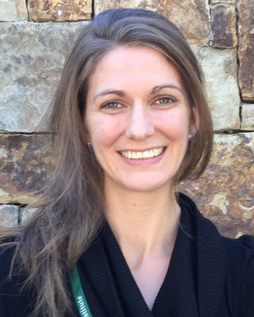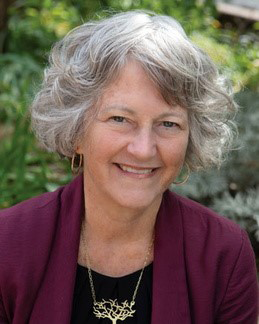Catalyzing Climate Change Content in Health Professions Education
Webinar Details & Objectives
As a leading public health concern of the 21st century, climate change will continue to affect global population health. Health professionals and health professions educators have important and unique roles in proactively addressing climate change and its implications. To try and create a healthier, climate-resilient future, schools and programs that train health professions students should integrate climate change and its health effects into the curricula.
Webinar participants will hear models and resources that can be used to help institutions integrate climate-health content into health professions curricula.
Objectives
- Compare educational models and resources to train health professions students to prevent, mitigate, and respond to the health consequences of climate change
- Apply the new GCCHE Climate & Health Competencies for Health Professions Students
- Summarize “lessons learned” in the development and implementation of climate-health curricula
To Register
For AACN Members, click on the "Register" button on the left side of the screen. For Non-AACN members, click on the registration button below.
Non-AACN Member Registration Form
Note: Recording of the webinar will be available soon after the webinar airs. Visit AACN's On-Demand Webinars to watch.
Speakers

Cecilia Sorensen, MD
Director, Global Consortium on Climate and Health Education
Associate Professor, Department of Environmental Health Sciences, Mailman School of Public Health
Associate Professor, Department of Emergency Medicine
Columbia University
Cecilia Sorensen, MD is the Director of the Global Consortium on Climate and Health Education at Columbia University, Associate Professor of Emergency Medicine at Columbia Irving Medical Center and Associate Professor of Environmental Health Sciences at Mailman School of Public Health, Columbia University. Dr. Sorensen received her Doctor of Medicine from Drexel University College of Medicine and completed a four-year emergency medicine residency at Denver Health. Following residency training, she completed a 2-year fellowship in climate change and human health policy with the National Institute of Environmental Health Sciences (NIEHS). Her work focuses on the intersection of climate change and health and how policy solutions, clinical action and education can build resilience in vulnerable communities. She currently serves on the working group for the National Academy of Medicine’s Climate and Human Health Initiative. She was an author for the U.S. Fourth National Climate Assessment and serves as a technical advisor for the Lancet Climate and Health U.S. Policy Brief. She is the co-editor of the textbook Climate Change and Human Health: From Science to Practice.

Teddie M. Potter, PhD, RN, FAAN, FNAP
Clinical Professor/Coordinator, Doctor of Nursing Practice in Health Innovation and Leadership
Director of Planetary Health; Pauline A. Vincent Chair of Public Health
Directorate, Katharine J. Densford International Center for Nursing Leadership
School of Nursing
University of Minnesota
Dr. Potter is deeply committed to climate change education including co-founding Health Professionals for a Healthy Climate, membership in the Alliance of Nurses for Healthy Environments, and membership on the American Academy of Nursing Environment and Public Health Expert Panel. She is a member of the Coordinating Committee of Columbia University’s Global Consortium on Climate and Health Education and a Fellow in the Institute on the Environment at the University of Minnesota. She chairs Clinicians for Planetary Health (C4PH) and is a member of the Steering Committee of the Planetary Health Alliance at Harvard.
At the University of Minnesota, Dr. Potter designed and co-teaches an interdisciplinary course titled “The Global Climate Challenge: Creating an Empowered Movement for Change”. In addition, she co-leads a Health Sciences initiative titled, “Climate Change and Health: An Interprofessional Response”. In 2019, Dr. Potter was appointed the first Director of Planetary Health for the School of Nursing.
In addition, Dr. Potter is Executive Editor for the Interdisciplinary Journal of Partnership Studies; a peer-reviewed, open-access, online journal promoting interdisciplinary collaboration as a solution for solving society’s grand challenges.

Dorothy Biberman, MPH, CPH
Director of Global Engagement and Executive Initiatives
Association of Schools and Programs of Public Health
Pricing and CE Credit
This webinar is free to deans, faculty, staff and students from AACN member schools of nursing.
Continuing Education Credits
 The American Association of Colleges of Nursing is accredited as a provider of nursing continuing professional development by the American Nurses Credentialing Center’s Commission on Accreditation. The Association of Schools and Programs of Public Health (ASPPH) works with the National Board of Public Health Examiners (NBPHE) to provide CPH credits.
The American Association of Colleges of Nursing is accredited as a provider of nursing continuing professional development by the American Nurses Credentialing Center’s Commission on Accreditation. The Association of Schools and Programs of Public Health (ASPPH) works with the National Board of Public Health Examiners (NBPHE) to provide CPH credits.
